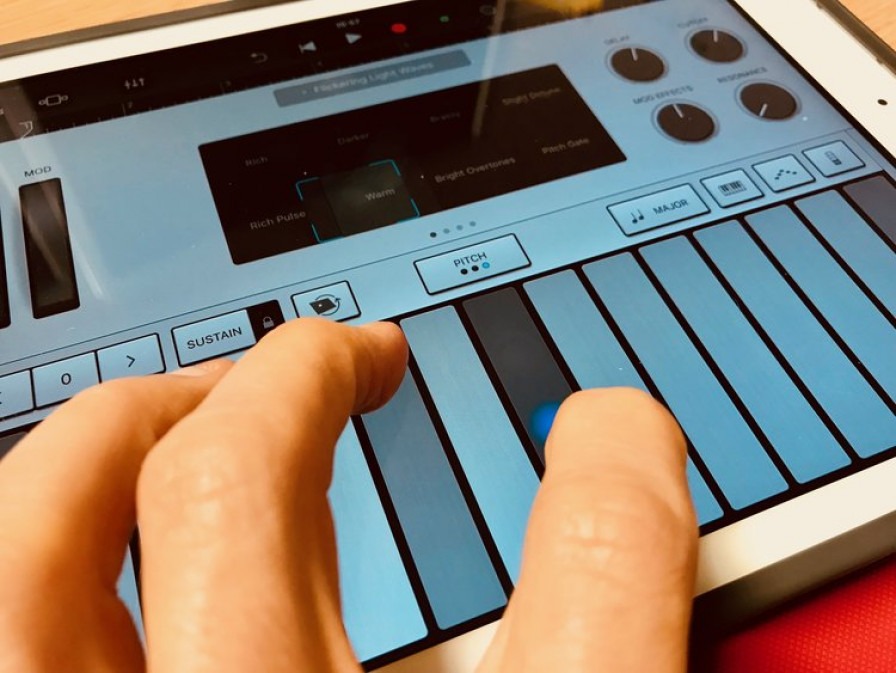Developing self-efficacy and collaboration in iPad Bands: a reflection on the first twelve weeks of the Synthesis Project

In September 2018, Southampton and Isle of Wight Music Hubs launched the Synthesis Project: a Youth Music funded project to help young electronic musicians overcome the challenges they face in life by making music together in iPad clubs, bands and orchestras. In the first twelve weeks of the project, 20 participants have taken part in over 50 hours of electronic music-making.
The band sessions have seen a number of emerging themes — many of which have challenged the whole team to reconsider their preconceptions of what a music-making session can be — but there are two key pairings of musical and personal development which have had a profound effect on both participants, and session leaders.
1. Self-Expression and Self-Efficacy
Sessions have prioritised performing expressively — through sound selection and timbre manipulation; through dynamic and textural changes; through melodic and harmonic interaction — and this focus has allowed for each participant to contribute their own sense of self to the sessions.
In their reflections after the first session, music leaders were blown away by the depth of insight they had into the personalities of the participants after just 15 minutes of making-music together.
We’re not exactly sure why this is, but we think that it has something to do with each participant being given the opportunity to take agency in the selection of sound, combined with the expressive focus of the warm up activities, which provides an opportunity for the open and safe sharing of individuality.
Participants’ sense of musical self-expression has come alongside a sense of self-efficacy — the music is theirs, and so they are empowered to change it, manipulate it, shape it and develop it.
The scaffolds and constraints which the iPad brings to the session — both through the quality of sound produced, but also by the setting of matching musical scales and tempos — creates a safe space in which the chaos of music-making possibilities are assailable.
Through exploring musical articulation, participants are rewarded with a sense of individual expression.
2. Composition and Collaboration
In iPad band sessions, participants perform and compose simultaneously: a process by which the sounds, melodies and musical fragments of each individual performer is valued, but must also contribute to the music as a whole.
For one participant — a young electronic musician who, whilst musically talented, had always refused to make music with others as part of previous music sessions at his school — has, for the first time, engaged in collaborative music-making: performing and composing with others; leading the group; and following the guidance of others.
Again, we’re not exactly sure why this is, but we think that it has something to do with the displacement of verbal negotiation, in favour of a continual musical interaction within the framework of the the evolving performance-based structures, which allow a shared goal to be created and worked towards.
Recordings throughout the session document these group interactions and having the group listen and review these recordings has become an important opportunity for participants to reflect on the music as a whole, and of the value of the contributions of each individual within it.
Because of the scaffolds and constraints put in place by the iPad, no single performer is able to create the music of the group: instead, each individual's contribution must interact with and be of service to the music of the group.
Through contributing to something that cannot be achieved alone, participants are developing the personal skills which enable successful cooperation.
In conclusion
As the team continue the first year of the project, there is an expectation that these themes will be further explored and expanded upon; and strategies for enhancing these positive outcomes for participants to be further identified, refined, developed and expanded.
Has anyone else got an tools or strategies they use for developing self-efficacy and collaboration in music-making sessions?

